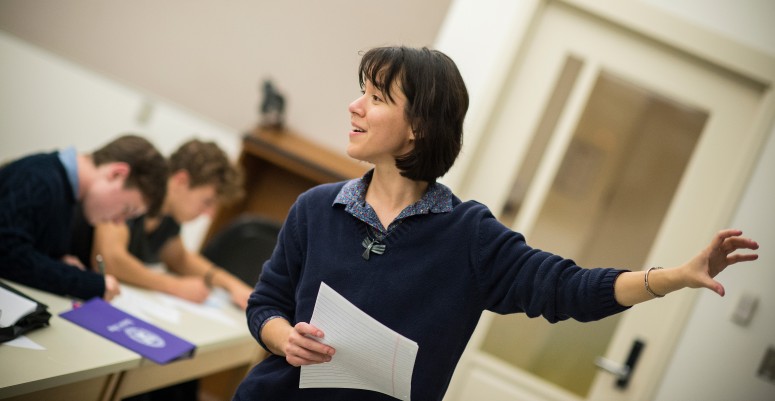Math Upended

From Kenyon News - August 26, 2015
Associate Professor of Mathematics Marie Snipes is trying to turn undergraduate math instruction on its head by developing a set of lessons in which students solve real-life problems and learn underlying math concepts along the way.
She teamed with three professors from other colleges to win a nearly $250,000 National Science Foundation grant to develop instruction modules that engage students in creative data-driven projects. Sometimes in upper-level math courses for undergraduates, applying the concepts to tangible projects is an after-thought, she said.
“What we’re trying to do is start with an application and have that lead into the math instead of learning a bunch of abstract stuff and maybe, if you’re lucky, hearing about the application at the end,” Snipes said.
Each lesson module begins by introducing a cutting-edge research problem related to data, image or video analysis, according to the group’s grant proposal. For example, students will be asked to recreate a 3-D image of a brain from 2-D slices of the image, similar to how a CT scan compiles data captured from various angles. In another lesson, students will examine videos of tsunamis and use math formulas to understand the macroscopic forces behind the spread of the monster waves.
The lessons, which could be added to existing upper-level classes or combined to form a single class, will be tested over the next two years at colleges around the country by a half dozen instructors, including Professor of Mathematics Carol Schumacher.
Testers will survey their students and provide Snipes’ team feedback. The team hopes professors eventually will adopt the lessons, which are designed with flexibility for shortening or adjustments, into their regular curriculum for classes such as “Real Analysis” or “Linear Algebra.”
The collaborating professors, whom Snipes met in 2010 at a math educators conference, come from Hendrix College in Arkansas, Washington State University and St. Mary’s College in Maryland.
The projects will give undergraduate students the feel of conducting research, which Snipes says is more common in graduate school.
Students come away with a more intangible skill: they develop some fearlessness to play around with large amounts of data to reach their conclusions, Snipes said.
“Often in classes, especially in math class, it’s expected there’s a right answer and a wrong answer, and this is open-ended and exploratory. Real data is messy and there is noise. Our modules will provide that realistic feel,” she said.